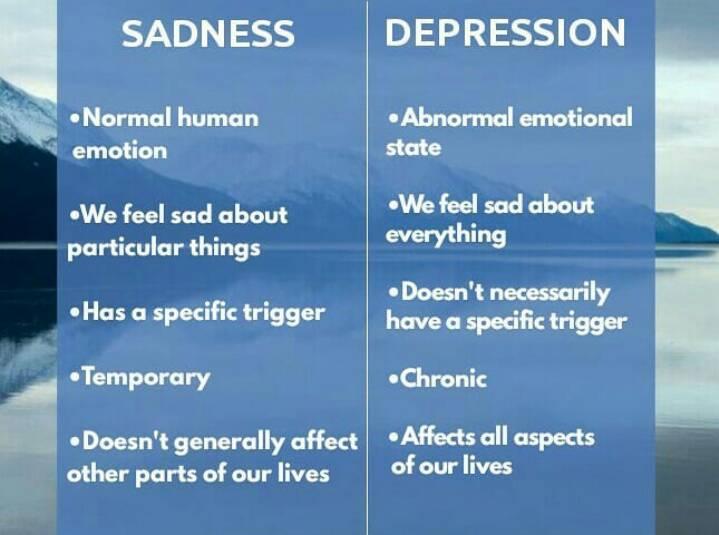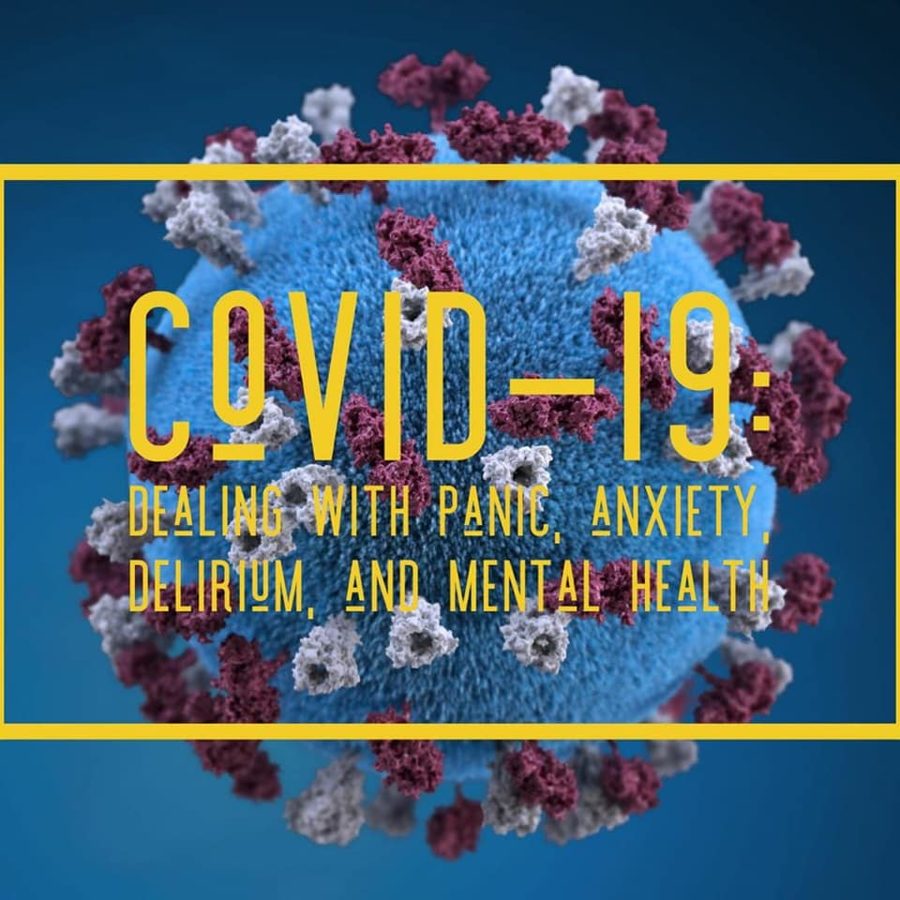The need of surge improve in career guidance and behavioral psychology in education system

A student from G.S. Kimironko a school in Gasabo District in Rwanda showing His jumping prowess
Having schooled in a village school in one of the rural parts of Kenya in Africa, I look back and appreciate the probability that a good seed “accidentally” fell on a certain ground and it grew and blossomed into the person I am today. While this should not be case, its fortunate that It happened, however I have come to realize that life is a not matter of chance but choice. When I reflect into my early years, I do not recollect a teacher or a guardian who foreknew anything that would become of me. Nobody had a sense of future and therefore I joined the club of individuals who had no future perspective and outlook of life. I did not know what I would turn out to be and worse still nobody was there to help me to apprehend who I was and the potential that I had. There is a probability that they too did not know and they too were products of fate. In those days, we went to school as part of the culture and worked hard to become what was not known. Many girls as a result of this ignorance dropped out of school and got married young, while boys dropped and started manual work in the neighborhood.
The teachers stimulated superfluous competition among the students and if one did not measure up to the set standards, we could be castigated and categorized as good for nothing and undeserving of attention. The students who scored highly were given special privileges and treated in a manner insinuating they were superior. This flattering of students unfortunately neither happened to the good runners and marathoners nor to good singers who earned awards after competitions. It is unfortunate that a repeat of this can happen in my world and in the 21st century.
During my official visits to schools to support teachers on teaching practice and internship, I have realized that like in my days, most of the students are similarly unaware of themselves, they do not know their abilities and have poor self-image emanating from the views of their society. Our society compares and encourages competition instead of considering individual distinctiveness and complementarity. Our society wants us to be all the same no-wonder they applaud and proudly talk of those students who have made it to the university and talk ill of those who fails attain such grades. What if that student who did not make it to the university but has passion for football and does it outstandingly or that student good in drawing and who creatively making astounding artistic products with hand skills?
Every person is created as an individual, with inimitable characters and strengths, for instance look at an avocado and a mango; though they may be of the same size and colour and are grown in the same area, they are different by default. No one can compare them for they are different in all ways. I have heard many teachers and parents telling students you are not a better performer than so and so; such announcements have killed destinies and shattered dreams simply because they oblige person in question to stop being an individual, and to halt working on becoming a better person. Instead, they start working hard to be that other person prized and highly celebrated so that he/she too can get approval.
Numerous studies in Africa show that the education system is still exam-oriented, even with the introduction of the competence-based curriculum, emphasis on academic performance still dominates the system and it seems like it may take longer than expected to see the outcomes of the new curriculum in essence. The system has made students who are of average and low IQ who are unfortunately the majority; to develop a sense of unworthiness and learned self-helplessness. I am just thinking, “What about if someone considered the uniqueness of these students and applauded them in their area of strength? Instead of reminding the students of what they are not and what they are not able to do; pushing them against the wall to do what they are not able to do, what if someone tried to understand their strengths and built on it, however small it may seem? In Africa especially, there is too much potential that is going into waste for it is believed only the “good academic performers” are destined for good jobs and happy lives which is not always the case. The principles and concepts of positive psychology do not apply in our education system notwithstanding the magnitude of benefits that would be yielded if only premeditated focus would be directed to programs that propagates for consideration of such important principles.
There is need to integrate supplementary programs in our education system to salvage the attitudes and perceptions of the young people during their transition into adulthood. Corstone’s Youth First Program helps the adolescents to discover and understand their character strengths; their inner qualities that shape the way they act, what they choose to focus on, their attitudes, thoughts and feelings.
The evidence backed resilience program has shown that when adolescents know their character strengths, they feel better about themselves, they become more successful, achieve their goals, are effective in what they do, feel good, have more fun and enjoy life and finally they get along with others. Teachers and parents need doses of positive psychology to support the students to be happy and live fulfilled lives.
Youth First Rwanda; a program aimed at helping adolescents to be resilient. A large proportion of the content and concepts of this program is based on positive psychology and attitudinal healing. The program is being piloted in schools in 5 districts in Rwanda with the hope of having it scaled up to all the schools in Rwanda. We hope to help the students become themselves and grow to become happy adults and with fulfilled lives.
Jane Nungari
Program officer for Youth First Program
Inspire Educate and Empower (IEE) Rwanda
Mental Health Programs Among the Youth
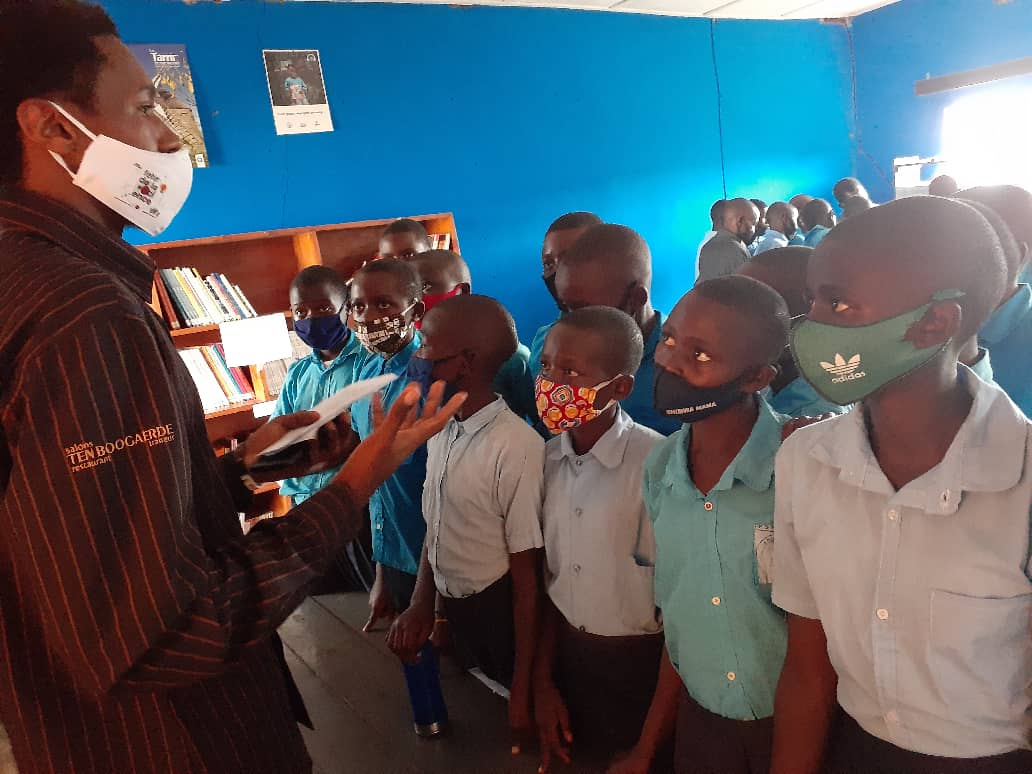
Numerous publications related to students learning in Africa has shown that the focus of education is virtuously academics. Poor students’ academic performance is an area of concern that has attracted a lot of interest and researchers have invested substantial amount of time finding out why students do not really perform well. According to a study by Rwanda Education for all Coalition (2015) Poor academic performance result from external factors for instance lack of instructional materials, poor teacher-parents’ relationship, social economic status of parents, and other related factors. While other studies have indicated that teacher factors largely contribute to students’ academic achievement.
Despite the fact that the foregoing may have great impact in students’ life and realization of life goals, it is undoubtable that there are several other weightier features that may affect student’s achievement and realization of life goals. Globally, governments and organizations are increasingly recognizing the need for an integrative approach to pupil learning. Rather than focusing solely on academics, learning priorities have shifted to also include other assets that foster emotional, social, and physical wellbeing and empower youth to set and achieve goals and become healthy contributing members of society.
Proactive and promotive programs that promotes adolescent’s capacity to navigate the most critical stage of life are missing in essence. Regrettably, programs that take care of adolescent’s mental health and wellbeing have been sidestepped and sidelined in educational planning. Adolescents subsequently lack skills for dealing with development-related, social and educational challenges encompassing those emanating from contemporary ideologies, and search for identity.
Mr. Hakizimana, a headteacher in a school in Kigali, Rwanda, explained that “It is not rare to find a student with a bright future, talented and with indications of a great destiny ahead being lured into drug and substance abuse, irresponsible sexual behaviors, and crime; increased rates school drop-out and wastage of capital”. In other cases where the students persist in schools, a large proportion has no future/ life perspective or even outlook; they cannot relate the future and now.
To salvage the relevance and importance of education, there is a need for governments, development agencies and other education stakeholders to come up with programs that cater for student’s mental health and wellbeing. Programs that builds students internal assets like coping skills, self-esteem, planning skills, and persistence and external assets like positive relationships. These assets are critical in academic success and also impact health outcomes (i.e. lower pregnancy rates, lower drug use) and help adolescents become healthy contributing members of society.
Development agencies, can diversify their interventions especially in Rwanda and give attention to mental health, promotion and treatment, rehabilitation and sensitization especially in educational institutions. They can also invest in programs that promote Social emotional learning and support the youth in educational institutions to understand and manage emotions, set and achieve positive goals, feel and show empathy for others, establish and maintain the positive relationship and Make responsible decisions
By Jane Nungari
IEE Rwanda.
Marital Confidence and Symptoms of Depression
“The purpose of removing a rib from Adam in the creation of the woman was not to form a biologically compatible creature, for that could have been accomplished with more dust; the purpose was to create kinship. ”
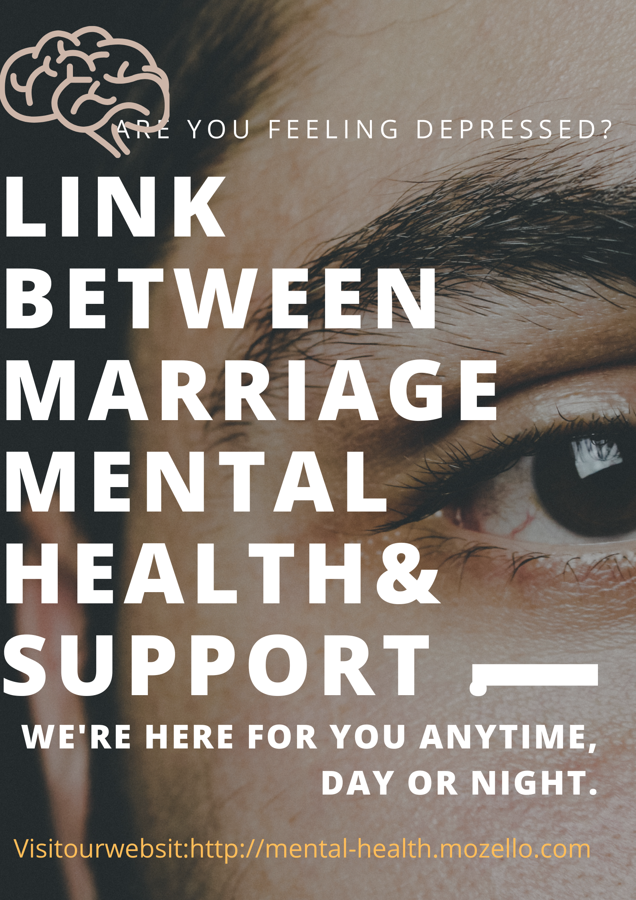
Marital Confidence and Symptoms of Depression
Many studies over the years have linked symptoms of depression with how a marriage is going. It ’ s clear that marriages affect depression and depression affects marriages. Research from Steven Beach at the University of Georgia, suggests that one way marriage and depression are linked is by negativity and conflict. Poorly handled conflict (like our Communication Danger Signs) puts both women and men at higher risk for symptoms of depression.
In a study by Sarah Whitton, coauthors Scott and Howard, and the research team at the University of Denver, found a special relationship between confidence and depressive symptoms for women. They measured confidence in terms of how strongly the person feels that her relationship has a solid future and also how strongly she feels that the two partners can successfully handle the issues that come their way in life. Changing Roles, Changing Rules found that the Communication Danger Signs led to women having lower confidence in the marriage, and that this lower level of confidence led to an increase in symptoms of depression. What does this mean for you and your partner?
First off,if you think you might be truly depressed, see your doctor or a mental health professional. Depression affects every aspect of your life, but it ’ s usually treatable. Second, keep in mind the many ways we ’ re saying to you that the Communication Danger Signs are bad for you and your marriage. If you and your spouse repeatedly have conflicts that become hostile or don ’ t go well, there is a chance that you may start to feel some hopelessness about your ability to resolve disagreements as a team and keep your marriage happy. These kinds of feelings, especially if they stick around for a while, can put you at risk for depression.
TYPES OF SUPPORT
Researchers use the word coping to describe what we do to deal with these upsetting events, and have found that both getting support from your partner and having the confidence that you can get that support if you need it are excellent ways of coping
To support your partner and your relationship, you can give
• Praise,
appreciation, or compliments
• Your time — which is also part of being there• Small tokens of love
• Gifts, large or small, at any time, including gifts that meet a need or desire of your partner
• Advice or opinions (though these are best given only when asked for)Here are some examples of the kinds of tasks that one partner can do to support the other when challenging times arise:
• Do housework
• Pick up the kids• Make dinner
• Call for airline tickets• Search online for something
• Assess what the other normally does during the day, and take on one of those tasksUnless you are living an unusually charmed life, you and your partner both experience stress, crises, illness, and other upsetting life events. Some are big and some are small, but no matter what, there are often times when you are unable to be happily carefree.
We want you to be able to be your best for each other when one or both of you are not free of care. There is a huge amount of literature on stress and coping in the psychological field ( http://mental-health.mozello.com/) . First, stress of many types can harm your relationship by leading to more negativity between the two of you. One or both of you are under each other. That ’ s not fun, and it damages your closeness. Second, one of the most important mechanisms for coping with stress in life is a supportive, loving mate. Third,feeling confident that you can get the support you need and want is just as important as receiving that support. Knowing that support is available, even if you do not use it all the time, is powerful. So how does the good stuff happen?
Support is a many splendored thing. There are a variety of ways that you and your partner can support each other, what works best for one person is not necessarily what works best for another. When you want to be helpful, you are likely to offer the type of support that works best for you , but it ’s especially important to learn about, pay attention to, and act on what is supportive to your partner (and vice versa).
Closely related to this point, the type of support you typically may need may not be the type of support your partner is best at giving. So even though your partner is trying to be supportive, you may not sense that support. Difficult situations can sometimes become worse when your partner is not there when you want him Being There or her to be. Partners may also become upset when they feel that they are trying to help, but find that the more they try, the worse things get.
But through it all, try to notice when and how your partner is attempting to give you support, even when it ’ s not what you might want or need most. We want you each to learn how to give more support to each other — support of the right type at the right time in the right way. It will also help, however, to recognize and be thankful for what your partner tries to do for you which can be harder than usual to do when you are the one who is stressed and anxious.
Being There
The night my father died it was hot and humid. It was the sort of night that would have been difficult to sleep anyway. . . . I felt a sadness so intense it hurt. Barbara curled up next to me on the sofa. She stroked me gently on the back and neck — the way she has
countless times when I am tense or tired, except the touch was so gentle this time. I talked a little, but not much. Eventually a fitful sleep came. In the dark hours of that evening I was not alone.I was loved.
— Kim Halford
Your Marriage and Your Mental health

The Effects of Stress
There are many studies that show a link between stress and how marriages are doing. It is clear that stress leads to difficulties in marriage and that difficulties in marriage can be major stressors that can lead to depression. When stressed out, most people give others less benefit of the doubt and are quicker
to react to frustrations with their partners. A fair number of studies suggest that stress leads to the partners ’ doing more of what we call the Communication Danger Signs. That negativity, in turn, diminishes the happiness and closeness that two people have together. All kinds of stress can fit this pattern. One that has been studied particularly well is economic strain. When couples are under financial pressure — such as feeling that there is just not enough money coming in to pay the bills — the partners become more negative with each other, damaging the marriage. Rand Conger at the University of California, Davis, and his colleagues have demonstrated this pattern in numerous studies over the past couple of decades. Just when you need to be most supportive of each other, stress can lead you to turn against each other. You ’ ll want to be particularly on guard against the danger signs when one or both of you is undergoing extra stress. Work hard during those times to be teammates against the stress rather than opponents against each other.
God is not the author of confusion, but of peace.
For High - Conflict Couples with Children
For those of you who have children, the stakes involved with your managing conflicts well are very high indeed. Research, such as that conducted by Robert Emery and colleagues of the University of Virginia and Mark Cummings and colleagues at Notre Dame, has documented strong links between parents ’ conflict and adjustment problems for children. Kids become more sad, angry, and fearful when regularly exposed to destructively handled conflict. This is one of the clearest and most consistent findings in the social science literature. (It ’ s also important to realize that children are usually more aware of what is going on between their parents or stepparents than the adults think.)
That children can be harmed by how their parents handle disagreements has led many to conclude that these children would be better off if their parents split up. However, many Destructive Patterns
of these children are hurt by how their parents fight, regardless of whether or not they stay together. What we mean by that is that these children don ’ t really do that much better if their parents divorce, because their parents still have not learned the skills to handle conflict in a healthy way. Another downside to poorly managed conflict around children is this. If parents tend regularly to make negative interpretations of each others ’ motivations and behavior, their children learn to do the same in relation to their peers ’ behavior. Further, for some couples, escalation takes them closer to the line between awful emotional patterns and physical aggression. These patterns thus raise the stakes forever for everyone in the home. So, what can you do? Disagree, but don’t fight nasty. If you have a conflict in your children ’ s presence, use Time Out to bring things to a better place as quickly as possible. Also let them see you coming back together — they often can ’ t see how you do that because many couples make up behind closed doors. As far as your children ’ s well - being is concerned, coming back to some point of emotional harmony is more important than resolving whatever it was you were fighting about. So do your kids a favor. Work together to manage your conflicts well and with respect.
“The purpose of removing a rib from Adam in the creation of the woman was not to form a biologically compatible creature, for that could have been accomplished with more dust; the purpose was to create kinship. ”
🥢Food-Mood🥢*
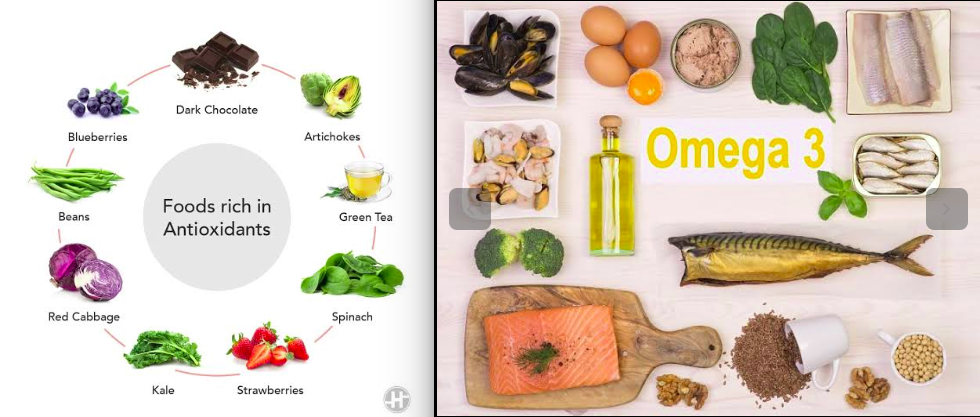
Coping with stress

Stress is a feeling of emotional or physical tension. It can come from any event or thought that makes you feel frustrated, angry, or nervous. Stress is your body's reaction to a challenge or demand. In short bursts, stress can be positive, such as when it helps you avoid danger or meet a deadline. But when stress lasts for a long time, it may harm your health.
“Stress is a normal feeling and can worsen when it comes to persistent ”. There are two main types of stress:
Acute stress. This is short-term stress that goes away quickly. You feel it when you slam on the brakes, have a fight with your partner, or ski down a steep slope. It helps you manage dangerous situations. It also occurs when you do something new or exciting. All people have acute stress at one time or another.
Chronic stress. This is stress that lasts for a longer period of time. You may have chronic stress if you have money problems, an unhappy marriage, or trouble at work. Any type of stress that goes on for weeks or months is chronic stress. You can become so used to chronic stress that you don't realize it is a problem. If you don't find ways to manage stress, it may lead to health problems.
STRESS AND YOUR BODY
Your body reacts to stress by releasing hormones. These hormones make your brain more alert, cause your muscles to tense, and increase your pulse. In the short term, these reactions are good because they can help you handle the situation causing stress. This is your body's way of protecting itself.
When you have chronic stress, your body stays alert, even though there is no danger. Over time, this puts you at risk for health problems, including:
High blood pressure, Heart disease, Diabetes, Obesity, Depression or anxiety, Skin problems, such as acne or eczema Menstrual problems
SIGNS OF TOO MUCH STRESS
Stress can cause many types of physical and emotional symptoms. Sometimes, you may not realize these symptoms are caused by stress. Here are some signs that stress may be affecting you:
Diarrhea or constipation, Forgetfulness, Frequent aches and pains, Headaches, Lack of energy or focusSexual problems, Stiff jaw or neck, Tiredness, Trouble sleeping or sleeping too much, Upset stomach, Use of alcohol or drugs to relax and Weight loss or gainEveryone—adults, teens, and even children, experiences stress. Stress is a reaction to a situation where a person feels threatened or anxious. Stress can be positive (e.g. preparing for a wedding) or negative (e.g. dealing with a natural disaster). Learning healthy ways to cope and getting the right care and support can help reduce stressful feelings and symptoms.
After a traumatic event, people may have strong and lingering reactions. These events may include personal or environmental disasters, or threats with an assault. The symptoms may be physical or emotional. Common reactions to a stressful event can include:
disbelief, shock, and numbness, feeling sad, frustrated, and helpless, difficulty concentrating and making decisions , headaches, back pains, and stomach problems, smoking or use of alcohol or drugs.
Healthy Ways to Cope with Stress
Feeling emotional and nervous or having trouble sleeping and eating can all be normal reactions to stress. Here are some healthy ways you can deal with stress:
Take care of yourself, Eat healthy, well-balanced meals, Exercise on a regular basis, Get plenty of sleep, Give yourself a break if you feel stressed out, Talk to others. Share your problems and how you are feeling and coping with a parent, friend, psychologists/counselors, doctor, or pastor.
Avoid drugs and alcohol.These may seem to help, but they can create additional problems and increase the stress you are already feeling.Take a break. If news events are causing your stress, take a break from listening or watching the news.
Recognize when you need more help. If problems continue or you are thinking about suicide, talk to a psychologist, social worker, or professional counselor.
Helping Youth Cope with Stress
Children and adolescents often struggle with how to cope with stress. Youth can be particularly overwhelmed when their stress is connected to a traumatic event—like a natural disaster, family loss, school shootings, or community violence. Parents and educators can take steps to provide stability and support that help young people feel better.
Diet Therapy
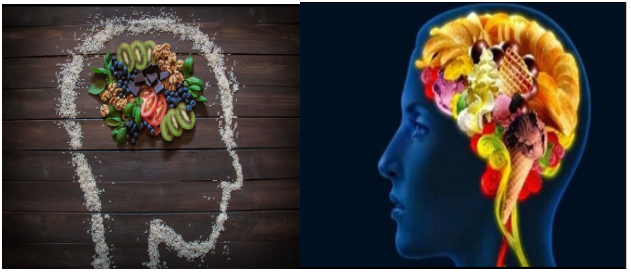
🥗 *Diet
Therapy* 🥗
Diet therapy breaks the general
diet into its *basic components* (water, carbohydrate, fiber,
protein, fat, vitamins, minerals, and other substances such as
alcohol) and consistencies (liquid, soft, or solid).
Each of these can be
altered to form therapeutic diets as shown by the following examples:
➡️ *Fluid-modified diets:* restricted fluid intake
for treating heart or kidney disease.
➡️
*Carbohydrate- modified diets:* for treating diabetes or
hypertriglyceridemia.
➡️ *Protein-modified diets:* low
protein for unstressed patients with chronic kidney disease; high
protein for stressed patients.
➡️ *Fat-modified
diets:* low total and saturated fat for treating
hypercholesterolemia; low total fat for treating malabsorption
syndromes.
➡️ *Mineral-modified diets:* low sodium,
potassium, and phosphorus for treating kidney disease
The main focus of
diet therapy is on natural and unprocessed whole foods and avoiding
❌oily, fried and canned food, in order to promote overall physical
and emotional health and avoid the risk of various diseases We are what we eat,
and so the food we consume plays a very important role in keeping us
physically and mentally healthy.
🥗 *Food-Mood*
*Complex
Carbohydrates:*
Complex carbohydrates are a form of
sugar made up of large molecules containing fibers and starch. This
sugar molecule is converted into glucose in the body and is then used
as energy which is beneficial for brain health and stabilizes our
mood. In contrast, the carbohydrates found in the canned food and
drinks imbalances the sugar level that rapidly increases and decrease
our mood and produce a negative effect on our psychological
well-being.
We often use these sugary snacks to comfort us
when we feel low, but this can create an addiction-like response in
food. And research has shown that they can also lead to
depression.
✅So it is advisable to eat natural food and
carbohydrates.
*Some of the food items are:*
•
Fruits and vegetables🥦
• Whole grains- Buckwheat, brown
rice, corn, wheat, barley, oats, quinoa.
• Nuts, seed and
legumes🥔- lentils, kidney beans, chick peans, all nuts and
seeds.
• Dairy products- Low-fat yogurt, skim milk
*Diet therapy is focused on the type of food we consume for the therapeutic purpose.
* It normally involves the modification in our existing diet plan, in order to maintain overall well-being. It is ordered to maintain, restore and correct nutritional status, to decrease calorie for weight control, provide extra calorie for weight gain. It also balances the amount of carbohydrate, fat and protein for control of diabetes.
*It is even replacing drug therapy in some cases.
* Whenever we have a deficiency of any vitamin or protein, our first response is to ask the physician to prescribe vitamin tablets. But, rather than depending on this supplementary tablets, we should take a look at our diet🥘, because food is the best and the natural way of maintaining all the vitamin and protein level.
*EMOTIONS AND FOOD:*🥗
We all know that eating healthy food improves our physical health, but very few of us are aware of the fact that healthy food is also important for our emotional health‼️.
*We are what we eat.*
Researchers have conducted
many studies validating the same. Scientific study shows that _eating
healthy can drastically alter your mood and enhance your life._ In a
study, researchers found that intakes of fruit, vegetables, olive
oil, nuts and legumes were significantly linked with *positive
emotion * whereas soda, sweets, and fast foods were inversely
related to positive emotion
Our emotional response is centered in the amygdala of the limbic system, which is located in the center of the brain. Although our mind normally controls the output of emotional states, sometimes emotional responses are so fast that our thinking brain (prefrontal cortex) has no time to act. Both our limbic system and prefrontal cortex are made of if millions of cells that feed off blood. And the quality of blood depends on the food we intake. *Therefore, emotional balance does depend on nutritional balance*
Meditation

How changing my morning routine changed my whole life.
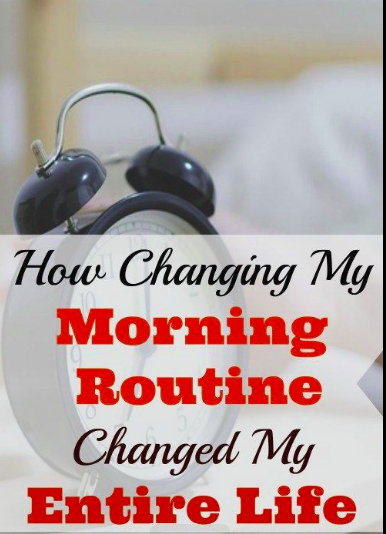
“No matter where you are in your life right now—whether you’re currently succeeding at the highest level you’ve ever imagined, or you’re struggling to find your way, there is at least one thing I know we have in common (probably a lot more than one, but one that I know for sure). We want to improve our lives, and ourselves. This is not to suggest that there is anything wrong with us or our lives, but as human beings we were born with the innate desire and drive to continuously grow and improve. I believe it’s within all of us. Yet, most of us wake up every day, and life pretty much stays the same.”
The Morning That Transformed My Entire Life
Teeth brushed, face washed, and a glass of water in hand, I sat up straight on my living room couch at 5:05 a.m., feeling genuinely excited about my life for the first time in a long time. It was still dark
outside, and something about that felt very empowering. I pulled out my list of life-changing personal development activities I had learned over the years but never implemented. One by one, I implemented each one. Silence Sitting in silence, praying, meditating, and focusing on my breath, for 10 minutes. I felt my stress melt away, felt a sense of calm come over my body and ease my mind. This was different from the typical chaos of my hectic mornings. For the first time in a long
time, I felt peaceful.
Affirmations Having never before harnessed the power of affirmations, it felt amazing to finally read the self-confidence affirmation from Think and Grow Rich aloud. The affirmation was a powerful reminder of the unlimited potential that was within me and within each of us. I decided to write my own affirmation. I jotted down what I wanted, who I was committed to being, and what I was committed to doing to change my life. I felt empowered.
Visualization I grabbed the Vision Board off my wall. I had created it after watching the movie The Secret. I rarely took time to look at, let alone use it as the visualization tool it was intended to be. For ten minutes, my focus shifted from image to image, pausing at each one to close my eyes and feel, with every fiber of my being,what it would be like to manifest each into my life. I felt inspired.
Journaling Next, I opened one of the many blank journals I had purchased over the years. Like all of the others, I had failed to write in for more than a few days a week at the most. On this day, I wrote what I was grateful for in my life. Almost immediately, I felt my depression lifting, like a heavy fog which had been weighing me down. It wasn’t gone, but it felt lighter. The simple act of writing down the things I was grateful for lifted my spirits. I felt grateful
Reading Having always made excuses why I couldn’t find time to read, I was excited to make time this morning and start what I had always hoped could become a lifelong habit. I grabbed Napoleon
Hill’s classic, Think and Grow Rich, off the shelf. Like most of my books, it was one that I had started, but never finished. I read for ten minutes, and picked up a few ideas that I was excited to implement that day. I was reminded that it only takes one idea to change your life, and I felt motivated
Exercise Finally, I got up off the couch, remembering what I’d heard Tony Robbins say so many times: motion creates emotion. I dropped down and did pushups until I couldn’t do one more. Then Iflipped over onto my back and did as many sit ups as my out-of-shape abs would allow. With six minutes left on the clock, I inserted one of my fiancée’s Yoga videos into the DVD player, and enjoyed completing the first six minutes of it. I felt energized. It was incredible! I had already experienced what was one of the most peaceful, motivating, empowering, inspiring, grateful, and energizing days of my life—and it was only 6:00 a.m.!
How to increase Your Wake-Up-Motivation-Level?
Step #1: Set Your Intentions Before Bed
The first key to waking up is to remember this: Your first thought in the morning is usually the last thought you had before you went to bed.
Step #2: Move Your Alarm Clock Across The Room
If you haven’t already, move your alarm clock across the room. This forces you to get out of bed and engage your body in movement. Motion creates energy, so when you get up and out of bed it naturally helps you wake up.
Step #3: Brush Your Teeth
As soon as you’ve gotten out of bed and turned off your alarm clock, go directly to the bathroom sink to brush your teeth, and while you’re at it, splash some warm (or cold) water on your face.
Step #4: Drink a Full Glass of Water
It’s crucial that you hydrate yourself first thing every morning. After 6-8 hours without water, you’ll naturally be mildly dehydrated, and dehydration causes fatigue. Often when people feel tired—at any time of the day—what they really need is more water, not more sleep.
Step #5: Get Dressed or Jump In the Shower
The fourth step has two options: Option #1 is to get dressed in your exercise clothes, so you’re ready to leave your bedroom and immediately engage in your Miracle Morning.
Accepting mind wandering and starting over .(mindfulness)
Accepting mind wandering and starting over .(mindfulness)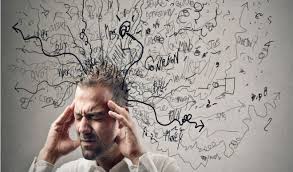

If find your self feeling feeling frustrated by the mind’s wandering …..,
remind yourself that mind-wandering is simply the doing mode at work; that moment of recognizing it it is itself a moment of mindfulness.
If you find yourself feeling “I should be better at this by now”…
remind yourself to note the should the “should,could,would,ought” thoughts the judging mind and return to the breath.
If you find that you are trying to control the breath…
remind yourself to let breath itself.
“Beginning again doesn’t mean we have made an error. It is the heart of the practice, not deviation from it.”
The moment realize that letting be, Allowing: Giving up control will make good practices toward mindfulness.
There is no particular state we need to achieve when practicing mindfulness of breathing – the idea is simply to allow the experience of each moment to be just as it is without requiring that it be any other way. In other words, to be aware and to settle into and dwell.
Clarity and steadiness of the mind follow as by product of such awareness and from allowing things to be as they are, but if we take momentary calmness as a sign of how much progress, we are merely sowing the seeds of further frustration and despair, for we are letting the doing mind compare our “achievement” with some desired “outcome”. As long as we are trying to get rid of unpleasant thoughts or feelings or trying to achieve peace of mind, we will continue to be frustrated.
The intention in mindfulness practice is not forcibly control by the mind but perceive clearly it’s healthy and harmful patterns. It is to approach our minds and sense of curiosity, openness, and acceptance so that we may see what is here to be discovered, and be with it without so much struggling. In this way, little by little, we begin to release e ourselves from the grip of our old habits of mind. we begin to know what we are doing as we are doing it. We are beginning graceful transition from unawareness to awareness.
And to deny the pain is to deny our own potential. Just as one must suffer physical pain to build stronger bone and muscle, one must suffer emotional pain to develop greater emotional resilience, a stronger sense of self, increased compassion, and a generally happier life.
That’s good—that’s the beginning. I can’t stress this enough, but pain is part of the process. It’s important to feel it. Because if you just chase after highs to cover up the pain, if you continue to indulge in entitlement and delusional positive thinking, if you continue to overindulge in various substances or activities, then you’ll never generate the requisite motivation to actually change.
The anatomy of depression
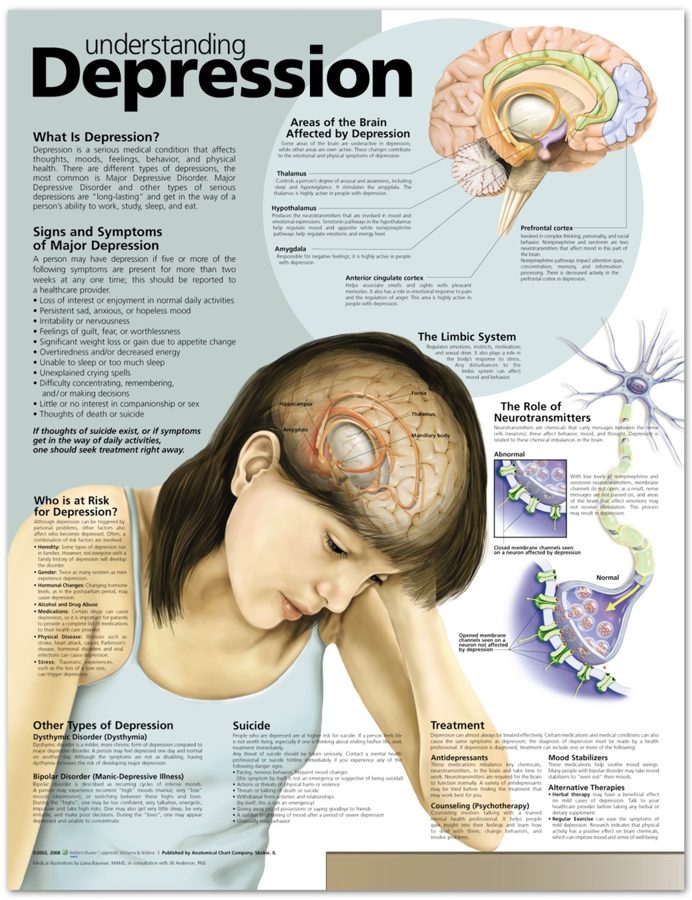
The anatomy of depression
It’s not difficult to see how feelings, thoughts, physical sensations and behaviours are all part of depression. As many of us are only too aware, being “down” can make it hard to do much of anything or to make choices that get us where we want to go. What’s harder to see is how any one part of this anatomy can trigger the downward spiral and then how each components feeds into and reinforces the others. By the process the state of mind that keeps us unhappy or leaves us vulnerable to depression gets stronger and stronger.
*feelings
The feelings by which we generally define depression are usually thought of as an end point. We’re depressed; we feel sad, low,blue,miserable,despondent,desperate. But they’re also a starting point: The research has shown that the more we’ve been depressed in the past,the more sad mood will also bring with it feeling of low-esteem and self-blame. Not only do we feel sad, we may also feel like failures, useless, unlovable, losers. These feelings triggers powerful self-critical thoughts: we turn on ourselves, perhaps berating ourselves for the emotion we are experiencing: This is dumb, why can’t I just get over this and move on? And, of course,thinking this way just drags us down further.
If you feel crappy it’s because your brain is telling you that there’s a problem that’s unaddressed or unresolved. In other words, negative emotions are a call to action.
*thoughts
Our emotional reactions depend on the story we tell ourselves,the running commentary in the mind that interprets the we receive through our senses. If something happens when we’re in a good mood, the running commentary in our mind is likely to tell us that it was merely unintentionally. We might feel little or no emotional reaction.
If we are feeling a bit down that day anything happen and the self-talk say we’ve been ignored, we may feel angry and in some way we may feel guilt. Many situations are ambiguous, but the way we interpret them makes a huge difference in how we react.The fact that we often take these toxic and distorted thoughts about ourselves as unassailable truth only cements the connection between sad feelings and self-critical thought stream. Knowing this is vitally important to understanding why depression takes a hold in some people and not in others or on some occasions and not in others.
“Negative thoughts can trigger depression or feed it once a low mood is upon us. We might sink into a glum mood by thinking nothing ever goes right for me. That mood may then trigger self criticism like why am I such a loser? As we try to unravel the causes of unhappy state, our mood plunges. As we investigates questions about our worthlessness, we form a whole scheme of negative thoughts, ready to be recruited at a moment’s notice in the future.”
Automatic thoughts of depressed people
-
I feel like I’m up against the world.
-
I’m no good
-
why can’t I ever succeed?
-
No one understands me.
-
I’ve let people down.
-
I don’t think I can go on.
-
I wish I were a better person.
-
I’m so weak.
-
My life goes the way I don’t want it to.
-
I’m disappointed in myself.
-
Nothing feels good anymore.
-
I can’t stand this anymore.
-
I can’t get started.
-
what’s wrong with me?
-
I wish I were somewhere else.
-
I can’t get this together.
-
I hate myself.
-
I’m worthlessness.
-
I wish I could just disappear.
-
what’s the matter with me?
-
I’m a loser.
-
My life is a mess.
-
I’m a failure.
-
I’ll never make it.
-
I feel so helpless.
-
Something has to change.
-
There must be something wrong with me.
-
My future is bleak.
-
it’s just not worth it.
-
I can’t finish anything.
“Automatic Thoughts questionnaire” by Philip C. Kendall and Steven D. Hollon
*depression and the body
Depression affects the body, demonstrated by the symptoms of major depression disorder. It rapidly leads to dysregulation of our eating habits, sleep, and energy levels. We might not feel eating, which can eventually result in severe and unhealthy weight loss. Or might feel overeat, gaining inordinate amount of weight. Our sleep cycles can be disrupted in either direction too: either we feel low energy at most of time and sleep too much, or we find it difficult to get enough sleep. We may find ourselves waking in the middle of the night or early in the morning and being unable to get back to sleep. The bodily changes we experience in depression can have profound effects on how we feel and think about ourselves..
The research shows that 80% of those who suffer from depression consult their physician because of aches and pains in the body that they cannot explain. Much of this is linked to the tiredness and fatigue that come with depression. In general when we encounter something negative our body tend to tense up.
Once the body reacts in this way to negative thoughts and images, it feeds back to the mind the information that we are threatened or upset. Research has shown that the state of our bodies affects the state of our minds without our having awareness of it.
“It’s not just that patterns of negative thinking can affect our moods and our bodies. Feedback loops in other direction, from the body to the mind, also play a critical role in the persistent return and deepening of unhappiness and dissatisfaction.
*The close links between the body and emotion mean that our bodies function highly sensitive emotion detectors.
*depression and behavior
When we feel downhearted or miserable. Perhaps, somewhere along the way, we picked up the that it was shameful or weak to show our emotions. We naturally assumed that people would think the worst of us if they knew we were depressed.
Depression makes us behave differently, and our behavior can also feed depression. Depression certainly affects the choices we make regarding what to do and not do, and how to act. If we’re convinced we’re “no good”or unworthy, how likely are we make choices informed by depressive state of mind, they’re more than likely to keep us stuck in our happiness.
If we have been depressed before, a low mood can become easier and easier to trigger over time, because each time it returns, the thoughts, feeling, body sensation, and behaviors that accompany it form stronger and stronger connections to each other. Eventually, any of this element can trigger depression itself.
What can we do to prevent the normal and understandable emotion of unhappiness from persisting or spiraling down from depression?
Our first challenge will be to understand why it is that we feel so powerless to change how we are feeling and why. The moment we accommodate mindfulness, a simple yet powerful way of paying attention to your most difficult emotions and life experiences, can help you break the cycle of chronic unhappiness once and for all.
Author: Kwizera Rulinda
References
1.Cognitive self-statements in depression: Development of an automatic thoughts questionnaireSteven D. Hollon & Philip C. Kendall2.The Genetics of Depression, Douglas F.Levinson
3.Associations between paternal depression and behaviour problems in children of 4–6 years
Shreya Davé, Lorraine Shirr,Rob Senior & Irwin Nazareth
Dealing with Panic, Anxiety, Delirium, and Mental Health
Dealing with Panic, Anxiety, Delirium, and Mental Health
Coronavirus has the world on edge.
As the figure of confirmed cases grow over day per day, it’s understandable that people would be frightened .
But some of the public panic displayed in the past weeks has been dis-appropriated to the risk posed by Covid-19 as we understand it today.
Why is that?
Psychologists and public health experts say that it comes from a mix of powerless AND LIMITED KNOWLEDGE.
As human beings, we have evolved to react poorly to uncertainty and unpredictability. When we feel like we don’t know everything we need to know in order to protect ourselves and our loved ones, we feel vulnerable.
Lack of information about the nature and the course of the threat exacerbates a feeling of not being in control which leads to anxiety and sense of panic.
When it comes to Coronavirus, it’s a fear of unknown. It’s spreading globally, there is currently no vaccine or pretest confirmed.
So what can we do?
Emotional regulation is the ability to align how we’re feeling with how we want to feel. It’s not about turning off emotions and not feeling anything, but about bringing them into a point where we feel it’s tolerable in a given situation.
When it comes to Covid19 , we don’t want to curve off our anxiety all together. By now we have heard the advice to slow the spread of coronavirus, we need to practice social distancing which is here to reconnect with things that we often neglect in order to protect our mental and emotional health.
Read books. Read research. Make homemade meals using new recipes (mixtures). Meditate . Exercise. Organize your house. The rest ,let people you care about know what they mean to be with them.
Research shows that psychological distancing helps with emotional self-regulation, decision making and problem solving, all key factors in conflict resolution.
WHAT EXACTLY IS A HEALTHY MIND? |
WHAT EXACTLY IS A HEALTHY MIND? | Your mindset influences how you think, feel, and behave. Having a healthy mindset is the ability to cope with stress, overcome challenges, build positive relationships, and recover from life’s setbacks and hardships. A healthy mind is much more than being free of stress, anxiety, or other psychological issues. Instead, it is the presence of positive characteristics and appropriate coping strategies.
People who are mentally healthy have:
▪️Positive coping skills to deal with negative emotions (sadness, anger, guilt, etc.)
▪️A sense of purpose and meaning in their relationships and daily activities
▪️The ability to build and maintain fulfilling relationships
▪️High self-esteem and self-confidence
▪️The ability to balance work and play and practice self-care
▪️The flexibility to learn new skills and adapt to change
▪️A sense of contentment
What do you think; do you have a healthy mind? 🤔
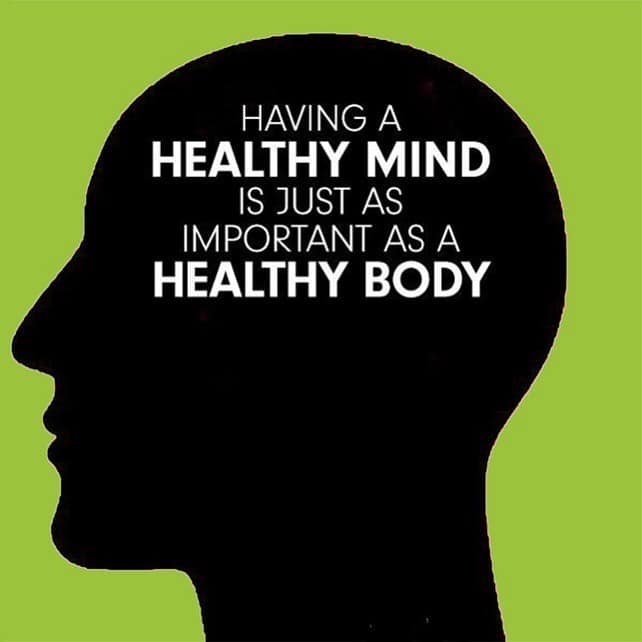
Difference between Sadness and Depression.
Depression is a very common and serious mental illness that negatively affects how we feel, how we think, and how we act. People who suffer from depression aren't people who "just choose not to be happy". It is important that we educate ourselves about the symptoms, causes & effects of depression so that we can identify depression for what it is and not just a feeling of sadness. .